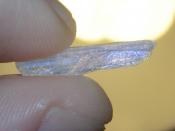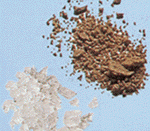Running head: METHAMPHETAMINE � PAGE �2�
Why was Hawaii called the "meth capital of the world"? Why do I see Hawaii Meth Project advertisements all over the public buses and television commercials? Why I have the random possibility to receive drug test once a month for illegal substances? Why do I have to go through bureaucratic red-tape when buying allergy medicine? I consider myself a law-abiding city dweller who associates himself with a Chinese ethnicity that rarely gets into legal trouble. These cramped, urban dwellings can't possibly hold a smelly meth lab or can it? It was a great opportunity to read about Nick Reding's Methland: The Death and Life of an American Small Town.
The book gave me great insight into meth without the experience of living with someone affected by it, except for one Hawaii Guardsman, who went to mobilization training in Texas and went crazy for the first few days, and with hindsight it was probably a drug problem and maybe meth.
The problem of meth is a complicated issue that stems from the nature of Americans and social-economic hardship. Reding believes that meth is the "most American drug" ,and some Americans believe that the heart of America is in the small town where everyone knows each other and life is more pure and simple. Although life in our rural heartland can be more impoverished and mundane.
It is an interesting fact that methamphetamine was first synthesized in 1898 by the Japanese, who also learned how to mass produce it with red phosphorus and ephedrine in 1919. During this time the Japanese, who joined the "civilized" world comparatively late, were rapidly industrializing and mobilizing for future imperialistic ambitions. America and Germany also marketed the same drug that "was prescribed as a treatment for thirty-three illnesses" (p.


